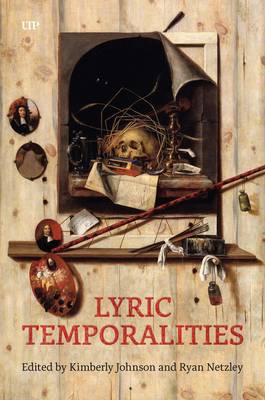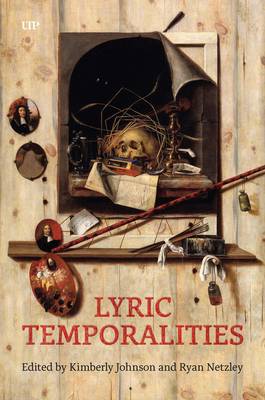
- Afhalen na 1 uur in een winkel met voorraad
- Gratis thuislevering in België vanaf € 30
- Ruim aanbod met 7 miljoen producten
- Afhalen na 1 uur in een winkel met voorraad
- Gratis thuislevering in België vanaf € 30
- Ruim aanbod met 7 miljoen producten
Zoeken
Omschrijving
The essays in Lyric Temporalities explore poetry's depictions and conceptions of time. Whether claiming to immortalize its addressees, worrying over time's passage and the misspent youth of lovers, or testifying to the fleeting nature of the sounds it nonetheless seeks to preserve, the lyric has for millennia adopted temporality as a central subject and theme, as well as a self-conscious examination of its own form. The contributors to this volume show how these pivotal generic and historical elements operate across periods: in allusion and translation, in memories of what constitutes a legible selfhood, and even in speculation about what non-human timescales (large or small) might look like. This collection also reveals that lyric neither simply opposes itself to the temporal unfolding of narrative nor stands in for presentness or heightened emotional sensation. Rather, it makes possible a reimagining of how we exist complexly in time by performing a surprisingly dynamic range of temporal operations. Lyric Temporalities challenges critical presuppositions about the durational processes of poetic encounter and the linearity of empirical experience.
Specificaties
Betrokkenen
- Auteur(s):
- Uitgeverij:
Inhoud
- Aantal bladzijden:
- 232
- Taal:
- Engels
Eigenschappen
- Productcode (EAN):
- 9781487560379
- Verschijningsdatum:
- 13/01/2026
- Uitvoering:
- Hardcover
- Formaat:
- Genaaid
- Afmetingen:
- 152 mm x 229 mm
- Gewicht:
- 439 g

Alleen bij Standaard Boekhandel
+ 228 punten op je klantenkaart van Standaard Boekhandel
Beoordelingen
We publiceren alleen reviews die voldoen aan de voorwaarden voor reviews. Bekijk onze voorwaarden voor reviews.








